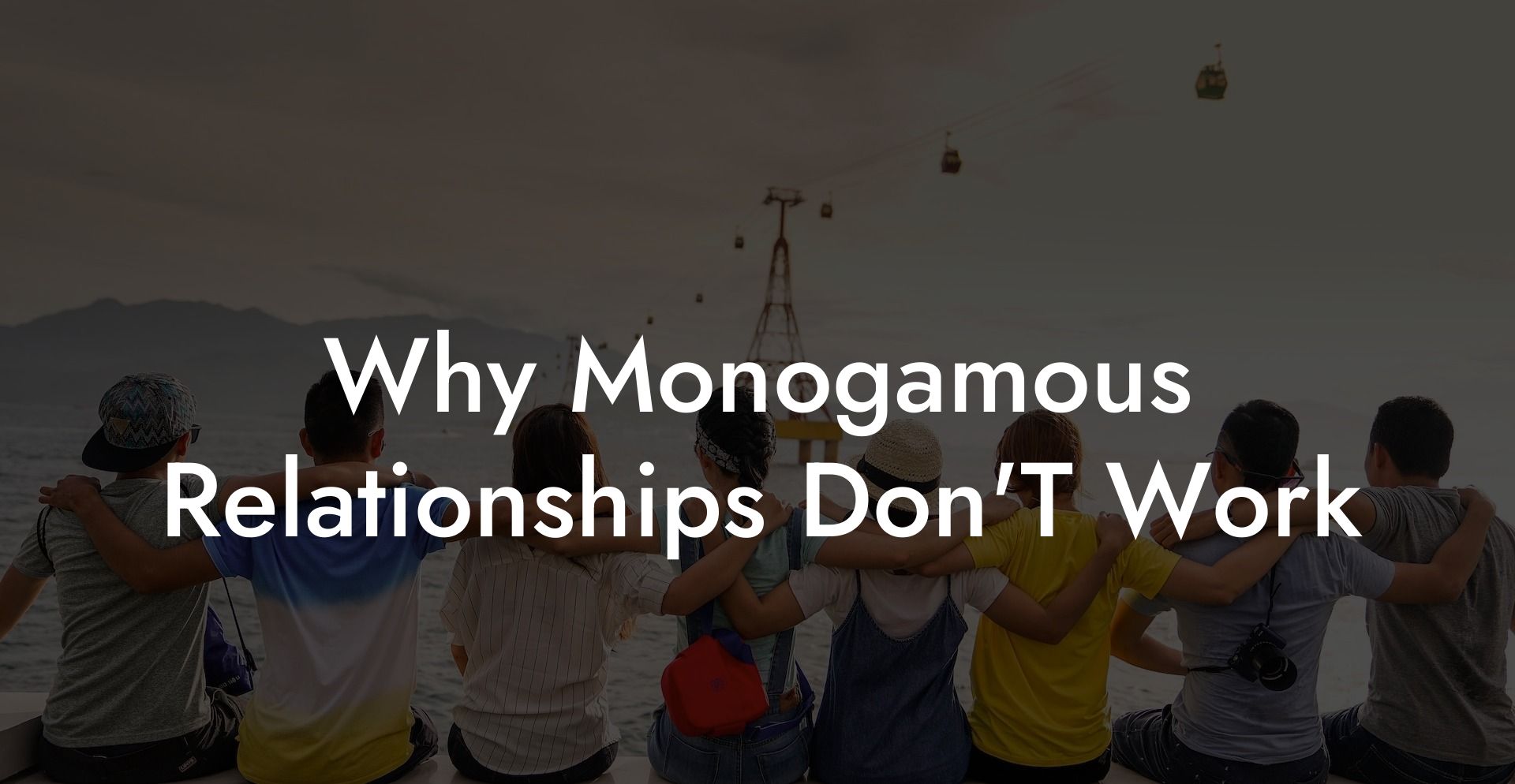In a world where the concept of monogamy is often touted as the ideal relationship style, it's time to question whether monogamous relationships truly work. With divorce rates soaring and many unhappy couples staying together for all the wrong reasons, could it be that monogamy is not the perfect fit for everyone? In this thought-provoking article, we will explore the reasons why monogamous relationships might not be the best choice for some people and present alternative relationship styles worth considering.
Why Monogamous Relationships Don'T Work Table of Contents
The Myth of Monogamy
Monogamy is often painted as the perfect relationship style, with couples staying together for a lifetime, supporting and loving each other through thick and thin. However, the reality is quite different. High divorce rates and unfaithfulness statistics show that monogamy might not be the ideal solution for everyone.
Unrealistic Expectations
Monogamous relationships typically come with high expectations of partners to be "everything" for each other. This means being a lover, confidante, best friend, emotional support, financial partner, and oftentimes, co-parent. With the weight of these expectations, it's no wonder that many couples fail to live up to them.
Lack of Personal Growth
Being with one person for a lifetime can limit personal growth opportunities. Many people feel they have to compromise or give up essential parts of themselves to make the relationship work. This can lead to resentment, dissatisfaction, and a longing for something more.
Infidelity
Despite the social stigma around cheating, infidelity remains a common problem in monogamous relationships. According to various studies, the infidelity rate ranges from 20-50% in married couples. This clearly indicates that monogamy might not be the best solution for a significant number of people.
Alternative Relationship Styles
As more individuals question the effectiveness of monogamy, alternative relationship styles are gaining popularity. Exploring these different possibilities can open up new ways of connecting and forming healthier, happier relationships.
Open Relationships
Open relationships allow both partners to have other romantic or sexual partners outside of their primary relationship. This approach can help individuals explore their desires and needs without the pressure of containing them within a single partnership.
Polyamory
Polyamory is a relationship style that allows individuals to have multiple loving and committed relationships simultaneously, with the knowledge and consent of all involved. This approach allows for personal growth, varied experiences, and a broader support network.
Relationship Anarchy
Relationship anarchy is a philosophy that rejects the idea of a relationship hierarchy and that romantic relationships are inherently superior to other types of relationships. Relationship anarchists value each connection for its unique qualities, rejecting the idea that particular relationships should follow a specific set of rules or expectations.
Why Monogamous Relationships Don'T Work Example:
Jane and Tom have been in a monogamous relationship for five years. Over time, Jane realized she was unhappy with their dynamic and longing for more personal freedom. After much introspection and several honest conversations, they decided to give polyamory a try. They met other people with whom they shared strong connections, and developed new relationships with their consent and understanding. This change led to Jane and Tom's relationship evolving into a more profound and fulfilling one, as they found the balance between nurturing their bond and pursuing individual paths.
It's essential to challenge the traditional notion that monogamous relationships are the only way to form meaningful connections. By exploring alternative relationship styles and understanding the limitations of monogamy, it's possible to find a more fitting and fulfilling relationship model - whether that be monogamy or something different entirely. If this article resonated with you, please share it with your friends to encourage a broader conversation about relationship options. And don't forget to check out other articles and guides on The Monogamy Experiment that delve deeper into the world of monogamy, non-monogamy, and polyamory.













